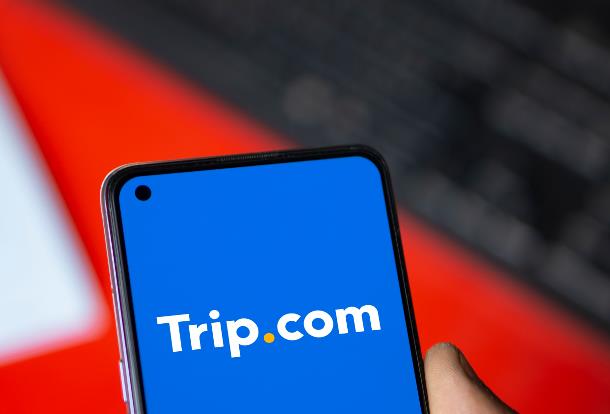ChinaTravelNews, Ritesh Gupta – French hospitality group Accor recently wrapped up a month-long sales and marketing promotion campaign in China, featuring a distinctive approach to program design, media planning and creative distribution via top digital platforms, including ones owned by Alibaba and Tencent.
The highlight of the campaign was the decision to leverage the strength of each platform, including Ctrip, Alibaba’s Fliggy, WeChat and Meituan Dianping, and accordingly boost the conversion rate to generate both accommodation-related and non-room revenue for properties in China.
“Our insight was clearly showing that April would be the month we would start to see the first phase of recovery begin in China. Community containment measures and certain other restrictions were beginning to relax from the onset. And again, from intelligence gather, we knew people were really eager to venture out. This insight and learnings were evident even when people needed to stay at home. We began preparing for the recovery in February of this year,” Vivian Yeh, VP Marketing Greater China at Accor told ChinaTravelNews.com in an interview.

The team developed and implemented a voucher program promoting rooms, dining options as well as take away and wellness through spas and health clubs. The bespoke and aspirational content created and delivered in partnership with key opinion leaders (KOLs), live-broadcast sessions and other e-commerce tools.
“Our campaign included vertical content push and KOL live broadcast to animate product sales. We focused on a variety of initiatives across all major platforms. The promotions were positioned alongside quality KOLs via live broadcasts of Fliggy, Ctrip, as well as WeChat etc. to go along with the promotion.” Vivian said. The idea was to identify certain demand to capture volume via room vouchers, for instance.
“We leveraged the Alibaba ecosystem with a targeted media plan. We tapped into the social aspect within the WeChat platform. And quite important was our members’ program developed with our partner at Ctrip. Our recovery strategy truly took on a comprehensive and relevant approach in order to drive share for our hotels leading into the first wave of demand for travel,” Vivian said.
Vivian shared how various platforms were animated in a differentiated way:
* Ctrip: Vivian acknowledged that since each platform has distinctive features and audience, Accor strategically planned and designed various promotions accordingly. So in case of Ctrip, a special Ctrip member rate program was jointly created and launched. Accor extended member benefits to a Ctrip member, she said. Accor also made use of Ctrip’s weekly live broadcast feature.
* Alibaba Fliggy: As you may be aware, we announced our strategic alliance with Alibaba late last year. We chose to launch our efforts primarily through Fliggy which served an integral part of the recovery campaign. “Together, Accor and Alibaba Fliggy created a “super brand month” on Fliggy in April to make it an Accor Month. We ended up driving a lot of traffic to our flagship store on Fliggy and strengthened our fan base on the platform and also enrolled buyers into ALL – Accor Live Limitless, Accor’s experience-based loyalty program. ” she said.
“…the way we work with Fliggy enables us to expose our Accor flagship stores in lot of different places within the Alibaba ecosystem and look at ways to offer additional benefits to members of ALL – Accor Live Limitless, an Accor loyalty program,” shared Vivian. Overall, international hotel brands are pleased with the streamlined mechanism crafted by Alibaba to bring both organic and paid traffic to a flagship store run by them.
* Meituan Dianping – Accor chose to capitalize on the prowess of the platform in the arena of food delivery. The daily average number of food delivery transactions increased by 36.4% to 23.9 million in 2019. Hotels acknowledged the strong base and growing competence to facilitate repeat transactions. “With Meituan Dianping, it was a plan to capitalize on their core expertise of food delivery and related offerings. We know Meituan Dianping is a leading local services platform and comes from a very strong food and beverage background, and the consumption pie for food and beverage is much better than the travel category so we focused on tapping the user base of the platform,” shared Vivian. A major highlight of Meituan Dianping’s performance last year was its ability to acquire new users, the majority of which came from third-tier cities and below. The transactions are also fuelled by impulse consumptions during off-peak hours via its on-demand delivery infrastructure.
“The promotion went as follows: if a consumer opts for a dinner outing for two at any of our hotels in China then they are going to be given a room night free. A dinner for two plus one night free stay offer is planned as a special product offer for this platform. It helped us to offer an additional option to reach out potential guests who intended to eat out but never had a plan of staying at a hotel. So it was a clever way of not only letting the consumers spend for dinner but also help the hotel to raise the occupancy level,” explained Vivian.
* WeChat: Accor has also led the way in using a blend of KOLs in Chinese live-streaming content and transactional capabilities to make full use of what social commerce has to offer today. KOLs explain benefits, and also share experiences of a product. Brands identify a KOL’s personality, and always work on a balancing act between brand-led and influencer-led initiatives. The concept of live-streaming channel embedded in transactional platforms is becoming increasingly common, and travel merchants, too, are leveraging the same approach.
“Since WeChat is a strong force in social e-commerce, we looked at food and beverage plus blending other specific products of a hotel - swimming pool, banquets etc. An option was given to buy a voucher for four cakes on birthday or special occasion within a year. The consumer can avail the offer to pick up a cake anytime. This kind of product is particularly welcomed by families,” mentioned Vivian.
Timing
Vivian felt that the timing to capitalize on the first demand for travel was crucial.
“Our results also show that decision to focus and be prepared for recovery was the right decision for us as the most diversified management company and our hotel owning partners. Even though travelers could not plan for any cross-border trips, they were absolutely ready to travel domestically. The initial trend showed families, couples and friends taking shorter distance driving radius - road trips - usually within a two-to-three-hour drive. So weekend getaways or staycation (a vacation spent close to home) were in demand. We worked on packages based on the theme of one-night or two-night stays,” said Vivian, who added that being aware of the fact that business travel was not possible by then, so the plan was to craft a promotion around leisure destinations.




